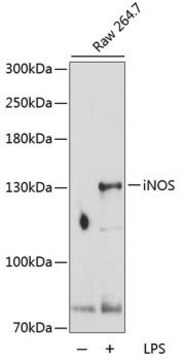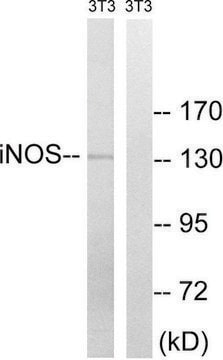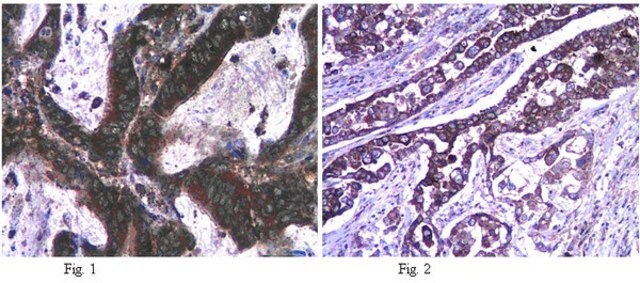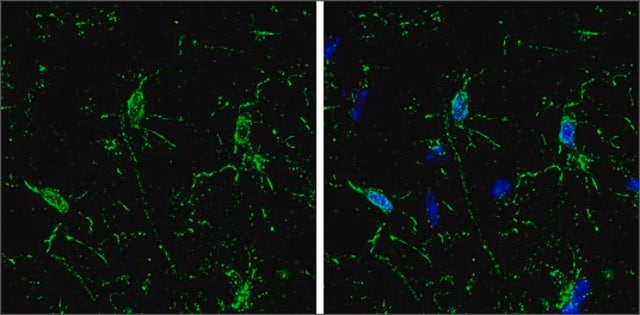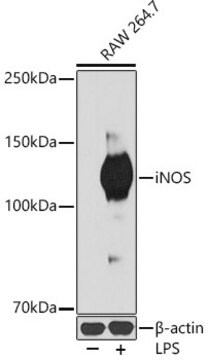SAB5500152
Anti-INOS antibody, Rabbit monoclonal
clone SP126, recombinant, expressed in proprietary host, affinity isolated antibody
About This Item
Empfohlene Produkte
Biologische Quelle
rabbit
Qualitätsniveau
Rekombinant
expressed in proprietary host
Konjugat
unconjugated
Antikörperform
affinity isolated antibody
Antikörper-Produkttyp
primary antibodies
Klon
SP126, monoclonal
Speziesreaktivität
human (tested)
Speziesreaktivität (Voraussage durch Homologie)
rat
Methode(n)
immunohistochemistry: 1:100
Isotyp
IgG
UniProt-Hinterlegungsnummer
Versandbedingung
wet ice
Lagertemp.
2-8°C
Posttranslationale Modifikation Target
unmodified
Angaben zum Gen
human ... NOS2(4843)
Allgemeine Beschreibung
Immunogen
Leistungsmerkmale und Vorteile
Physikalische Form
Haftungsausschluss
Sie haben nicht das passende Produkt gefunden?
Probieren Sie unser Produkt-Auswahlhilfe. aus.
Lagerklassenschlüssel
10 - Combustible liquids
WGK
WGK 2
Flammpunkt (°F)
Not applicable
Flammpunkt (°C)
Not applicable
Analysenzertifikate (COA)
Suchen Sie nach Analysenzertifikate (COA), indem Sie die Lot-/Chargennummer des Produkts eingeben. Lot- und Chargennummern sind auf dem Produktetikett hinter den Wörtern ‘Lot’ oder ‘Batch’ (Lot oder Charge) zu finden.
Besitzen Sie dieses Produkt bereits?
In der Dokumentenbibliothek finden Sie die Dokumentation zu den Produkten, die Sie kürzlich erworben haben.
Unser Team von Wissenschaftlern verfügt über Erfahrung in allen Forschungsbereichen einschließlich Life Science, Materialwissenschaften, chemischer Synthese, Chromatographie, Analytik und vielen mehr..
Setzen Sie sich mit dem technischen Dienst in Verbindung.
